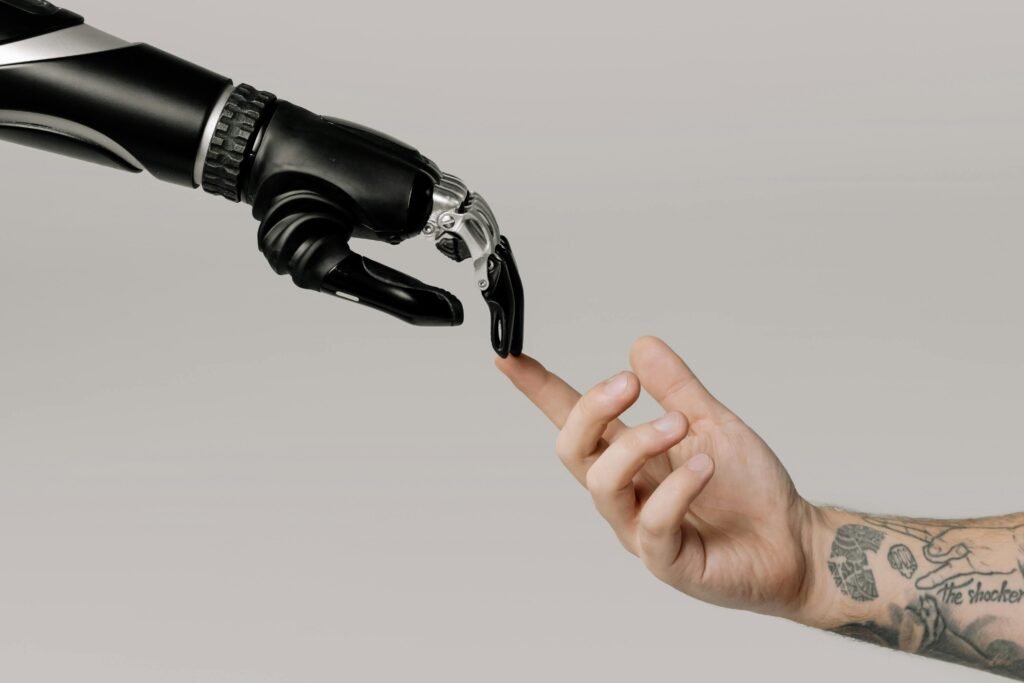Science fiction no longer exists when it comes to artificial intelligence (AI). Our world is changing quickly, and it’s affecting every aspect of our lives, from the moment we get up until we go to sleep. Artificial Intelligence is impacting our jobs, learning, health, and social interactions. Examples of this include the tailored recommendations on your phone and the self-driving cars being tested on public roads.
The effects of AI on productivity and efficiency are among the most important. Artificial Intelligence (AI) technologies are automating repetitive jobs that were previously performed by human labour. Human potential can now be used for more intricate and imaginative projects. While AI algorithms in offices are processing mountains of data, crunching numbers, and generating reports in a fraction of the time it would take a person, AI-powered robots in factories are constructing things with amazing precision.
AI is also causing a revolution in the healthcare sector. AI is being used to create individualized treatment plans, evaluate medical images for early disease identification, and even support surgeons during difficult surgeries. In a perfect world, artificial intelligence (AI) would be able to forecast your chance of contracting specific diseases and provide preventive actions based on your genetic composition, medical history, and current health data. AI in healthcare promises this kind of future.
AI is having an impact on schooling as well. AI-powered tutors can offer pupils individualized instruction that is tailored to their unique learning styles and areas of strength and weakness. Consider a virtual instructor who can modify the pace and style of instruction according to the emotional state and comprehension level of a pupil. This has the power to completely transform education, increasing everyone’s access to and effectiveness from it.
Artificial Intelligence is becoming more crucial in safeguarding our security and safety, even outside the domains of business and education. Massive data sets can be analyzed by AI algorithms to find possible security risks, such as fraud and cyberattacks. Artificial intelligence (AI)-powered facial recognition software is being used to identify suspects and enhance public safety. Even if these technologies raise privacy issues, artificial intelligence (AI) has the potential to be a very useful tool for maintaining our security.
But some issues need to be resolved as a result of the development of AI. The possibility of job displacement as more and more work are mechanized is one of the main causes for concern. We must make sure that new possibilities are generated in other fields as AI replaces specific employment. Furthermore, privacy problems are raised by the massive volume of data that AI systems rely on. Creating moral guidelines and legal frameworks is essential to guaranteeing that AI is applied appropriately and doesn’t violate people’s privacy.
Conversations concerning the nature of intelligence itself and the future of labour are also being sparked by the development of AI. The distinction between human and machine intellect will become increasingly hazy as AI develops. In the future, people and machines will work together harmoniously, utilizing one another’s advantages to accomplish amazing feats, so we must be ready for this.
To sum up, artificial intelligence is a strong force that is changing the world at a rate never seen before. It has the power to enhance our lives in a multitude of ways, from increasing our productivity and learning to improving our health and safety. But it’s crucial to recognize the difficulties posed by AI and to strive for its ethical and responsible development. One thing is certain as we proceed: AI will keep being a major factor in determining how mankind develops. Are we ready to face this future and make sure AI is applied for the benefit of society as a whole?

Share this content:



